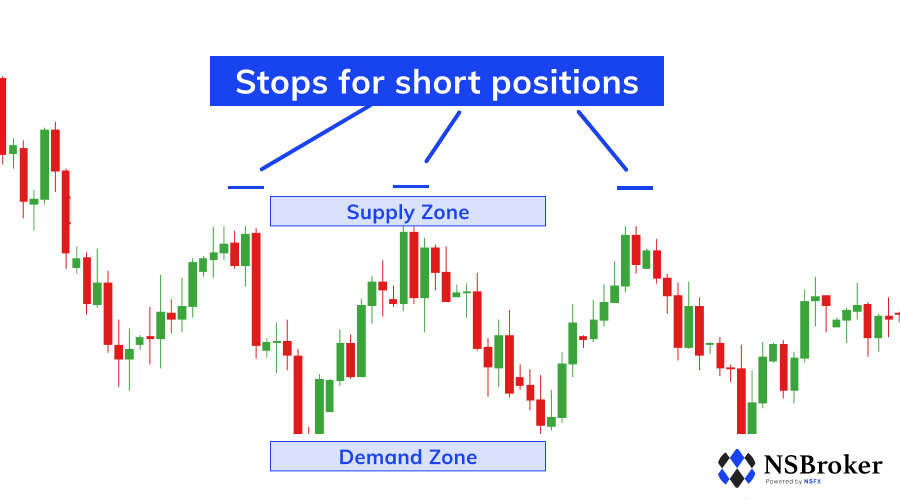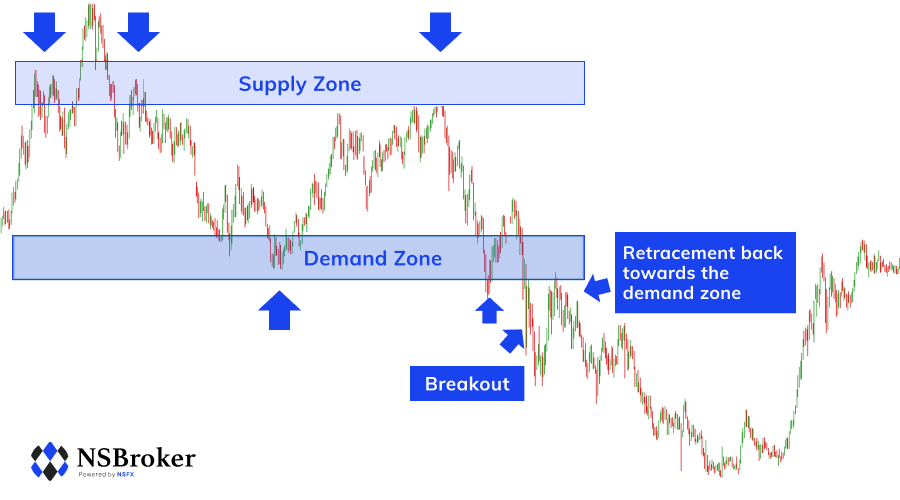Trading In The Zone

Trading can be daunting
Author Mark Douglas knows that trading can be daunting. Whether audiences have been glued to the news following various economic collapses or just have a general distaste for Wall Street, there is an overall sentiment that the marketplace is for highly skilled traders who can navigate complex procedures while making the majority of their money in corrupt, secretive deals.
Every-day individuals do not have the time or energy to keep up with the unending policies and reforms, especially when it seems the whole thing is either rigged or has about the same odds of success as gambling in Las Vegas. Some career traders are the first to admit that even they don’t fully understand how the markets move, which leaves everyday readers to feel like the world of investing is as incomprehensible as it is impenetrable. It is very easy to become disillusioned with the system as a whole and ultimately feel nothing but suspicion and pessimism. This wary and cynical audience is exactly whom Mark Douglas hopes to address with his book, Trading in the Zone: Master the Market with Confidence, Discipline and a Winning Attitude.
Way of thinking. Mark Douglas
As the title suggests, Douglas’ book is about mindset. Before any reader can begin to research the world of investing, trading, and brokering, they have to feel some sense of optimism and possibility. Douglas is the first to admit that this is not always easy, especially when the news seems to be routinely reporting stories where hard-working families lose their houses or high-powered investment firms get caught in scandals. However, the environment of investing is like anything else in life. There are risks and there are people who are out to take advantage of you. This, however, does not mean that all people are bad or that these risks come with no rewards. It simply means that before trading, individuals need to be careful and educated. The first principle that Douglas hopes to share is that trading is not impossible and it is not structured to steal money. The optimistic – and necessary – mindset is to embrace that trading is an opportunity intended to make money, and a vast network of resources and professional advisory support is available to all members of the public.
Agree or Disagree
Early in the book, Douglas provides what he calls an “Attitude Survey.” This lengthy list of Agree or Disagree questions seems to rhetorically correct a reader’s mindset simply by making them admit how jaded they may have become.
Some prompts that create this dynamic are:
- “To make money as a trader you have to know what the market is going to do next”
- “My risk is always defined before I enter a trade”
- “I wouldn’t even bother putting on the next trade if I wasn’t sure that it was going to be a winner”
- “Sometimes I just can’t help feeling that I am a victim of the market”
(Douglas XVII, XIX). While not exactly rhetorical, these prompts do seem to have a correct answer.
Of course the markets are unpredictable and it is nothing personal. In this regard, the most experienced traders must accept the same inherent risk as a first-time investor. Everyone hopes to make money, but no one is guaranteed of it. The best that anyone can do is make financial responsible decisions based on learned analysis. Douglas’ book however takes this one step further and proclaims to readers that their learned analysis will mean nothing if not conducted with confidence. Again, this is not betting; this is strategic trading based on patterns and insight. Douglas has achieved his own insight from a few key recognitions. The one that he refers to repeatedly is the confidence that comes with consistency. Douglas explains many times that once someone learns a winning strategy, they can continue to use it with great ease and confidence.
Within his own prose, Douglas is aware how controversial some of his statements may seem. Acknowledging his faith in consistency while also exhibiting modest self-awareness, Douglas writes, “For those who have learned how to be consistent, or have broken through what I call the ‘threshold of consistency,’ the money is not only within their grasp; they can virtually take it at will. I’m sure that some will find this statement shocking or difficult to believe, but it is true. There are some limitations, but for the most part, money flows into the accounts of these traders with such ease and effortlessness that it literally boggles most people’s minds”. The level of confidence that Douglas imparts seems to dismiss any possibility of failure. Those who have been led to financial ruin through trading are seen as both lacking in confidence and failing to develop or adhere to a winning strategy. Trading in the Zone promises that such unfortunate occurrences are entirely avoidable.
To Douglas, there is no such thing as too much confidence when it comes to trading. Instead, relinquishing all doubt is one of the four key components that he refers to as the secret nature of trading. He writes, “If there is such a thing as a secret to the nature of trading, this is it: At the very core of one’s ability.
- To trade without fear or overconfidence
- Perceive what the market is offering from its perspective
- Stay completely focused in the now moment opportunity flow
- Spontaneously enter the zone
"It is a strong virtually unshakable belief in an uncertain outcome with an edge in your favor” . The main lessons that readers take away from Trading in the Zone is that they should believe in themselves, they should learn to interpret every investment for its maximum potential, they should be open to ongoing opportunities, and once a winning formula is recognized they should stick to it. Douglas repeats these principles using a variety of examples, however they make up the core of his entire book. To Douglas, investing is not daunting, complex, or even risky. The markets behave in predictable manners based on patterns and rules. The vocabulary may be a little different from everyday language but the principles that guide successful trading are highly recognizable. As long as individuals partake in trading with a sense of patience and pace, they can fortify their confidence with experience, and find themselves in the position of limitless success.

Review
It is difficult to distinguish if Mark Douglas’ Trading in the Zone is meant to be a hyper-specific self-help guide or is simply the least informative book on trading ever published. The lack of structure and ideas makes the reading experience painfully tedious, which is only outdone by the sheer irresponsibility of the principles he attempts to share. It is unfortunate how convoluted and intimidating trading has become. There is no doubt that numerous industries exist making outrageous promises to customers, only to quickly lose their money. However, assuring a general readership that they will get rich as long as they believe in themselves is so ridiculous that at times the book can read as fairly humorous satire. Should anyone actually be inspired by Douglas’ book, the results would likely not be so funny.
First and foremost is Douglas’ reliance on confidence. In a very narrow-minded perspective, he is correct that most successful people appear confident. Yet, they are not confident because they willed themselves to be. They are confident because experience and education has provided them with the tools they need to succeed. Douglas is wrong that there is no such thing as overconfidence. Not only does overconfidence exist, but also it can be disastrous when individuals make financial decisions based on too much confidence. One only needs to look at the housing crisis in America from a decade ago to see the impact of overconfidence. Housing was believed to be the most reliable market in the United States. Banks allowed people to take out mortgages on homes they could never afford because they had such confidence in the overall market. This was happening at the same time banks were also repackaging subpar bonds with housing securities because it confidently believed that the housing market would compensate for their decreased value. When the bottom fell out, investors lost a lot more than their confidence.
This example is apropos concerning Douglas’ constant faith in patterns. Following patterns is exactly what caused America’s recent recession, and also has the least payout of any investment strategy. However, readers would never know this because Douglas explains absolutely nothing. He spends more time inventing and defining his own terms than providing insight into the jargon of the trading market. After 200 pages of Douglas’ motivational speech, readers are more likely to know what “opportunity flow” is than a bond option. This will get them nowhere in the real world.
Trading in the Zone is a self-help book, plain and simple. Audiences have proven their love of self-help books, however attempting to get readers motivated to eat better has an entirely different responsibility than getting readers to trade on the stock market. This is where the book goes from harmlessly bad to socially irresponsible. Douglas does not present his work like a self-help book. Instead, he uses the traditional semantics of swindlers, convincing readers that everyone else is getting rich so they should too. Douglas does not instruct readers on how to plan for the early learning experiences of trading, or what to do when their first attempt doesn’t go well. Instead, he just seems to say if you believe in yourself strong enough, you’ll be rich in no time. This is not at all how trading works.
The problem is that some readers will believe Douglas. He sounds so confident when he writes bold declarations such as, “Ninety-five percent of the trading errors you are likely to make—causing the money to just evaporate before your eyes—will stem from your attitudes about being wrong, losing money, missing out, and leaving money on the table. What I call the four primary trading fears” . This appears so manageable and remarkably straightforward. Gullible readers must be elated to learn that their state of mind will negate nearly all of the risks they will encounter in the marketplace. Where did Douglas get this miraculous statistic? He never says. In fact he never cites any of his data.
Like most self-help writers, Douglas attempts to engage readers with simple language, bold declarations, and constant repetition. It seems as though every reader must respond to this text in one of two ways. Either they will be amazed at the opportunity they have been missing out on or they will be furious at the obvious rhetorical tactics Douglas is utilizing. Pyramid schemes and scam emails are known to inspire similar reactions from their audiences. Those individuals who are susceptible to get-rich-quick strategies will love this book. Practitioners of business and rhetoric will think it’s awful.

Trading in the Zone is not inevitably terrible because it is a self-help book. It is instead terrible because Douglas has no talent or voice as a writer. More problematic is that the book is irresponsible. Encouraging impressionable readers to dive into trading with no experience and no inhibitions is just as bad as the actions of a corrupt banker or a greedy hedge fund manager. These people prey on the confused, the uninformed, and the desperate. It is difficult to know whom to trust when getting started, because everyone within the industry is willing to make big promises and broad generalizations. What audiences don’t want to hear is that trading is complex and risky, however this is the truth. Risk and complexity can be managed and planned for, however they are inevitable. The world of trading is not an impenetrable environment of specialists and crooks, however it also cannot simply be conquered by confidence and consistency. There are many excellent books on the market to help first-time traders get started. Mark Douglas’ Trading in the Zone is not one of them.









